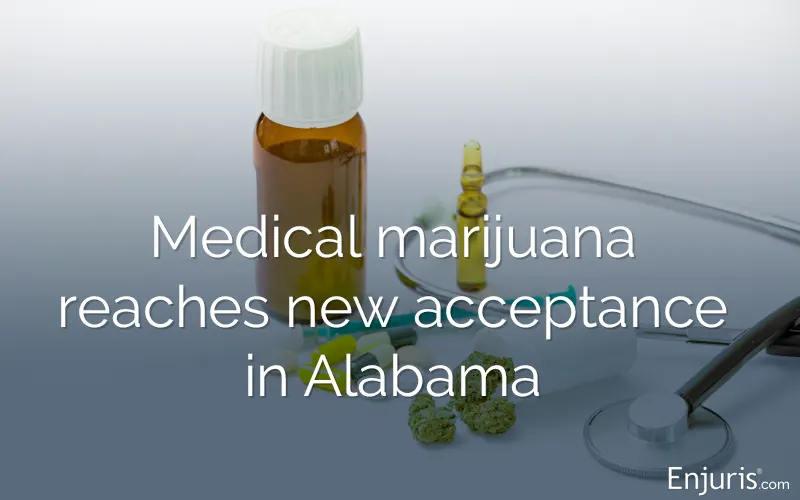
Years ago, you might associate marijuana with hippies, skaters, or others who were seeking a “high” through weed, pot, grass, dope... whatever you would choose to call the drug that comes from the cannabis plant.
The cannabis plant produces dried leaves, flowers, stems and seeds that become marijuana that can be smoked, vaped, or consumed in food. It can be addictive and mind-altering, but it’s being used more and more often for medical purposes.
THC is the psychoactive ingredient in marijuana. It stimulates the part of the brain that responds to pleasure, which releases dopamine and causes the person to feel euphoric or relaxed.
Is medical marijuana different from recreational marijuana?
Yes, there are differences. Marijuana used as medicine, or “medical marijuana” is CBD-based rather than THC-based. Cannabidiol (CBD) oil is a chemical found in marijuana but it does not contain THC. Therefore, it can have medicinal effects without producing the “high” that people want from recreational marijuana use.
In medicine, marijuana is used to relieve symptoms of specific illnesses, including multiple sclerosis and others. It might be used to relieve nausea, lessen pain, or stimulate appetite.
There is an FDA-approved CBD product called Epidiolex that is used to treat epilepsy and reduce the effects of seizures. However, it’s also being studied to gauge its effectiveness for treatment of Parkinson’s disease, schizophrenia, multiple sclerosis, anxiety, and other conditions.
Are cannabis industry employees treated differently from other workers?
They can be.
Cannabis industry employees often face different treatment compared to workers in other sectors because of a variety of legal and regulatory reasons. Here are some key factors that contribute to this difference:
- Federal vs. state law: In many countries, including the United States, cannabis is legal at the state level but remains illegal under federal law. This discrepancy creates complications for businesses and their employees, especially when it comes to banking, taxes, and federal employment protections.
Is cannabis legal in Alabama?
Cannabis is illegal in Alabama for recreational use. However, medical marijuana is legal under certain conditions. The Alabama Medical Cannabis Act, passed in 2021, allows for the use of medical marijuana for specific qualifying conditions but with strict regulations on how it can be obtained and used.
Patients with qualifying conditions such as chronic pain, depression, epilepsy, or terminal illnesses can use medical cannabis, but it must be recommended by a licensed physician and obtained through approved dispensaries. This is limited to non-smokable products like creams, gels, oils, and other non-raw plant forms.
- Banking and financial services: Due to federal regulations, many banks are hesitant to offer services to cannabis-related businesses. This affects payroll and the ability for employees to receive direct deposits and access financial services commonly available to other workers.
- Lack of employment protections: In some regions, cannabis industry employees might not have the same employment protections as other workers. For example, they might be more vulnerable to being fired for off-duty cannabis use, even in states where it is legal.
- Stigma and social perception: Despite growing acceptance, there remains a stigma associated with cannabis. Employees in the cannabis industry can face social and professional discrimination.
- Regulatory complexity: The cannabis industry is highly regulated, with stringent rules about licensing, product testing, packaging, and sales. Employees often have to undergo special training and certification, and businesses must adhere to strict compliance standards, which can be more burdensome compared to other industries.
- Taxation issues: Due to the U.S. Internal Revenue Code § 280E, cannabis businesses cannot deduct many expenses that other businesses can. This tax issue can affect the profitability of cannabis businesses and indirectly impact their employees' wages and benefits.
Can employees in the Alabama cannabis industry receive workers’ compensation?
Yes, the Alabama Medical Cannabis Association announced in December 2023 that it partnered with the Alabama Healthcare Workers’ Compensation Fund in order to enable a cannabis industry worker to receive workers’ compensation benefits.
The fund is sponsored by the Alabama Hospital Association and is specific to state health care and related entities. An employer must be part of the Alabama Medical Cannabis Association to join the fund.
In essence, this partnership, which also includes the insurance firm Harmon Dennis Bradshaw, enables a qualified employer that is a member of the Association to participate in the state’s healthcare self-insured fund. The fund is designed specifically for healthcare and healthcare-related entities in Alabama, and it provides workers’ compensation coverage for those employees. As of this partnership, this now includes workers in the medical cannabis industry.
What workers’ comp benefits are available to Alabama cannabis industry employees?
Like other Alabama workers, a cannabis industry employee who is injured at work may claim:
- Medical expenses
- Wage loss benefits, including temporary and permanent disability
- Death benefits for surviving dependents
You can learn more about Alabama workers’ compensation benefits.
If you’re an employee of the Alabama medical marijuana or cannabis industry and you were injured while working, you might be eligible for benefits. The Nomberg Law Firm is always current on Alabama laws and regulations as relevant to workers’ compensation and personal injury claims. We can help you reach the compensation you need to move forward after an injury.

